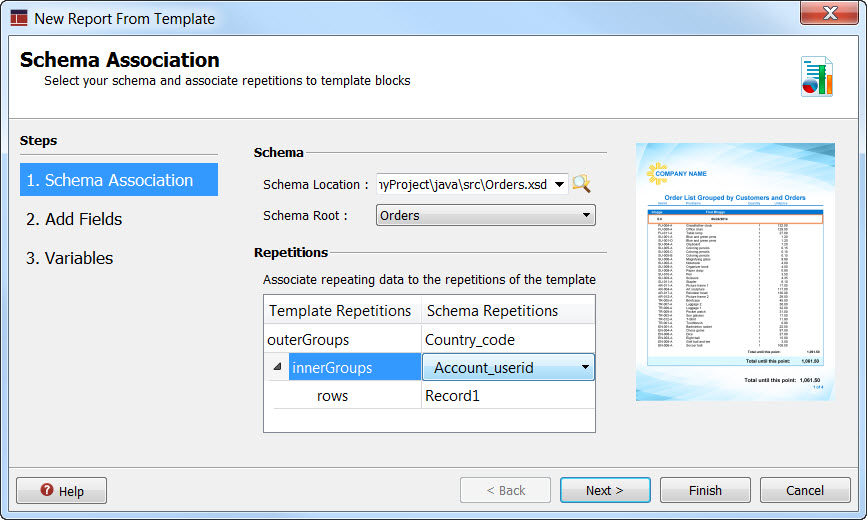Schema Association page
The Schema Association page in the New Report From Template wizard lets you select your schema and associate schema repetitions to template repetitions.
There are two sections on the Schema Association page.

Schema
In the Schema Location field, you select the name of the data schema file to use. Selecting this file populates both the Schema Root combobox and Repetitions section with suggested default values.
The Schema Root field, select the root of the data model. If you have a master and details listed, select the master. If the data schema was generated with the Business Application Modeler, there will only be one schema root.
Repetitions
A report template has repetitions. You can repeat the whole document, you can repeat sections of the report, and you can repeat each row. The sections of the report that repeat are listed under the Template Repetitions column. When you click on a row, the associated repetition is highlighted in the report sample.
A data schema has repetitions. These repetitions represent the hierarchy of data, as defined in
the ORDER BY clause in the query used to extract the data. Once
added to a report design document, these repetitions are identified by triggers. When you click on a cell in
the Schema Repetitions column, a combobox appears with a list
of possible schema repetition fields to select from.
In completing this section, map the template repetitions to the schema repetitions. If the data schema has groups defined, the wizard attempts the mapping for you.
To change a group setting, click in the Schema Repetitions cell for that group. A combobox appears, allowing you to select one of the other grouping fields defined in the data schema. The section of the report that relates to this group is highlighted in the report sample.
The last row of the repetitions box is for the individual data rows themselves; the rows that will appear in the listing. For most reports, this is going to be the record defined in the data schema.